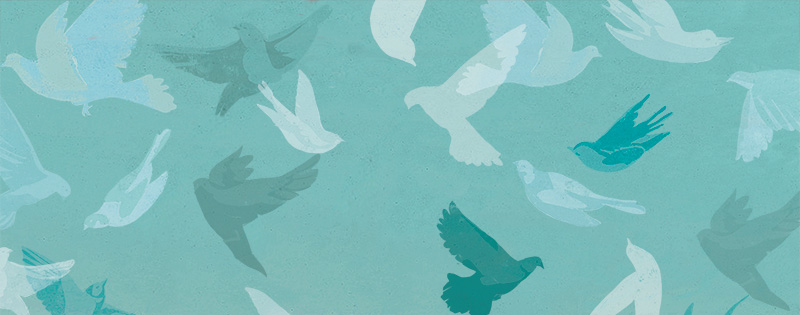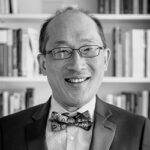
An interview with Amos Yong, professor of theology and mission, by Editor in Chief Jerome Blanco.
Jerome Blanco: What do ministry leaders need to understand about the ways the church yearns for hope today? Can you describe the the landscape of hope or hopelessness we’re currently in?
Amos Yong: 2024 being a presidential election year reminds us of how divided we are, not only as a nation but as a church. It’s not only the partisan disagreements but the rhetoric of demonization and the praxis of otherization that we have experienced and are caught up in. Beyond “red states” and “blue states,” and by extension “red churches” and “blue churches,” we also have congregations arguing internally and disfellowshipping each other because of our differences. Underneath it all, in our electronic age, news comes from so many directions, and our social media silos have created cocoons of dis- and misinformation so there is no consensus on what is true. It would seem as if the time has come indeed “when people will not put up with sound doctrine, but having itching ears, they will accumulate for themselves teachers to suit their own desires, and will turn away from listening to the truth and wander away to myths” (2 Tim 4:3–4). In this climate, which many believe will persist through at least another presidential administration and therefore through the rest of this decade (if not beyond), we might all be despairing instead.
JB: How might leaders sustain their own hope as they engage in the work of sharing Christ’s hope with others in such a time?
AY: When considering our condition, my own hope is sustainable only in communities of difference. I am compelled into solidarity with others who are less privileged and fortunate, beginning first in Christian worship and fellowship and then growing from there to friendship, so that my life and perspective can be enriched by others who differ from me experientially, ethnically, racially, economically, socially, and politically. Fellowship and worship can then also perhaps open up to rereading Scripture together, studying God’s Word amid our differences, first to nourish our spirits and then perhaps also to guide our postures and choices. As a theologian, I believe hope arises in and through the perennial Christian practices of fellowship, worship, friendship, and Scripture reading.
JB: How might churches step further into this work of carrying Christ’s hope into the world?
AY: As such hope continues to be forged in our disparate communities of faith, perhaps we can also look for opportunities to accompany those who hold vastly different theological and political commitments than us. By this, I mean creating space for mutual presence, so we can walk with others in and through the twists and turns of our personal lives against the backdrop of the ecclesial and national body politic. This accompaniment of course cannot be forced but presumes some kind of mutual attractiveness and invitation. Such walking together might bring about the bearing of reciprocal but also dissonant witness. Yet that is what happened on the Day of Pentecost: a kind of comprehension across languages about God’s deed of power yet an amazement and confusion regarding what was happening and what it all meant. God’s hope here arrives out of being in the Spirit with others and allowing that mutuality to bear witness to the living Christ afresh for our time.

Amos Yong is professor of theology and mission and has been a member of Fuller’s faculty since 2014. Since coming to Fuller, Dr. Yong has also served as the director of the Center for Missiological Research, the dean of the School of Theology and the School of Intercultural Studies, chief academic officer, and recently concluded a successful term as dean of the School of Mission and Theology. He has authored or edited more than 50 books and 225 scholarly articles, including The Missiological Spirit: Christian Mission Theology in the Third Millennium Global Context and The Future of Evangelical Theology: Soundings from the Asian American Diaspora.
An interview with Amos Yong, professor of theology and mission, by Editor in Chief Jerome Blanco.
Jerome Blanco: What do ministry leaders need to understand about the ways the church yearns for hope today? Can you describe the the landscape of hope or hopelessness we’re currently in?
Amos Yong: 2024 being a presidential election year reminds us of how divided we are, not only as a nation but as a church. It’s not only the partisan disagreements but the rhetoric of demonization and the praxis of otherization that we have experienced and are caught up in. Beyond “red states” and “blue states,” and by extension “red churches” and “blue churches,” we also have congregations arguing internally and disfellowshipping each other because of our differences. Underneath it all, in our electronic age, news comes from so many directions, and our social media silos have created cocoons of dis- and misinformation so there is no consensus on what is true. It would seem as if the time has come indeed “when people will not put up with sound doctrine, but having itching ears, they will accumulate for themselves teachers to suit their own desires, and will turn away from listening to the truth and wander away to myths” (2 Tim 4:3–4). In this climate, which many believe will persist through at least another presidential administration and therefore through the rest of this decade (if not beyond), we might all be despairing instead.
JB: How might leaders sustain their own hope as they engage in the work of sharing Christ’s hope with others in such a time?
AY: When considering our condition, my own hope is sustainable only in communities of difference. I am compelled into solidarity with others who are less privileged and fortunate, beginning first in Christian worship and fellowship and then growing from there to friendship, so that my life and perspective can be enriched by others who differ from me experientially, ethnically, racially, economically, socially, and politically. Fellowship and worship can then also perhaps open up to rereading Scripture together, studying God’s Word amid our differences, first to nourish our spirits and then perhaps also to guide our postures and choices. As a theologian, I believe hope arises in and through the perennial Christian practices of fellowship, worship, friendship, and Scripture reading.
JB: How might churches step further into this work of carrying Christ’s hope into the world?
AY: As such hope continues to be forged in our disparate communities of faith, perhaps we can also look for opportunities to accompany those who hold vastly different theological and political commitments than us. By this, I mean creating space for mutual presence, so we can walk with others in and through the twists and turns of our personal lives against the backdrop of the ecclesial and national body politic. This accompaniment of course cannot be forced but presumes some kind of mutual attractiveness and invitation. Such walking together might bring about the bearing of reciprocal but also dissonant witness. Yet that is what happened on the Day of Pentecost: a kind of comprehension across languages about God’s deed of power yet an amazement and confusion regarding what was happening and what it all meant. God’s hope here arrives out of being in the Spirit with others and allowing that mutuality to bear witness to the living Christ afresh for our time.
Amos Yong is professor of theology and mission and has been a member of Fuller’s faculty since 2014. Since coming to Fuller, Dr. Yong has also served as the director of the Center for Missiological Research, the dean of the School of Theology and the School of Intercultural Studies, chief academic officer, and recently concluded a successful term as dean of the School of Mission and Theology. He has authored or edited more than 50 books and 225 scholarly articles, including The Missiological Spirit: Christian Mission Theology in the Third Millennium Global Context and The Future of Evangelical Theology: Soundings from the Asian American Diaspora.
Kyong-Jin Lee, associate professor of Old Testament studies, resists contemporary apocalyptic narratives of climate change and considers instead a perspective of hope.